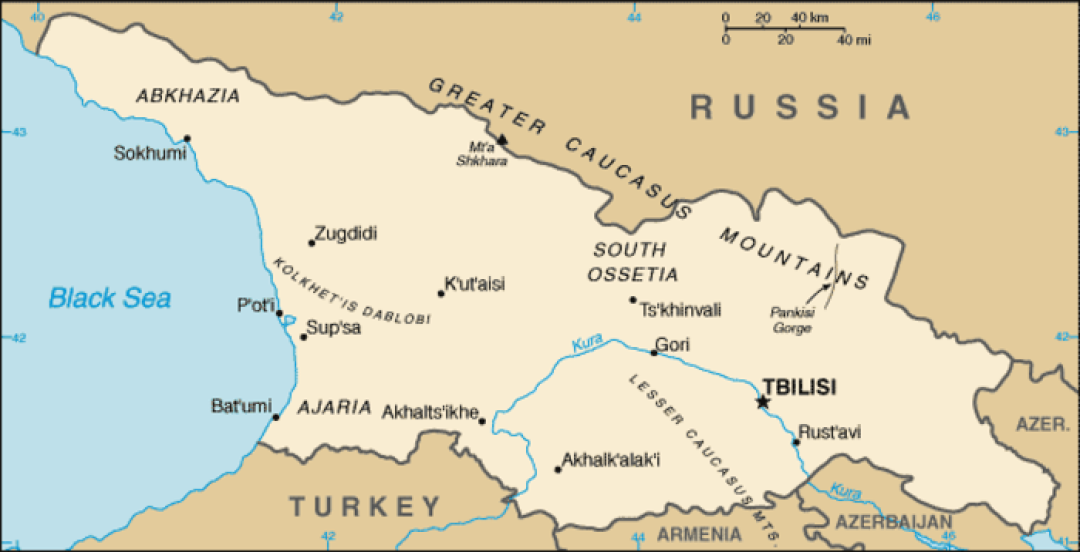
Geneva Talks Highlight Tensions Over No-Force Agreement and Humanitarian Concerns

During the 61st round of the Geneva International Discussions (GID) on June 25-26, participants addressed the security and humanitarian consequences of the 2008 Russia-Georgia war.
According to the GID Co-Chairs' press release, participants in Working Group I "engaged in an active, at times tense, exchange of views on the practical implementation of the 2008 Six-Point Agreement, with a particular focus on the non-use of force and international security arrangements," while discussions in Working Group II "were also challenging, but participants managed to address several humanitarian issues, such as crossings, documentation, detentions, missing persons and health." The Co-Chairs highlighted the positive cooperation within the Ergneti Incident Prevention and Response Mechanism (IPRM) and stressed the importance of resuming the Gali IPRM meetings "without further delay".
In a statement, the Russian Foreign Ministry emphasized the need to intensify efforts to ensure lasting security in the occupied territories. Moscow stated, "The signing by Georgia of a legally binding document on guarantees of non-use of force against these republics and the beginning of the process of delimitation of the Georgian-Abkhazian and Georgian-South Ossetian state borders [occupation lines] with their subsequent demarcation will be of key importance in this regard." In addition, the Russian Foreign Ministry criticized the UN General Assembly resolution on Georgian IDPs as "highly politicized" and an obstacle to constructive humanitarian work. Russia attributed the blockage of this issue within the GID to the "denial of access" to representatives of the occupied territories.
Russia and the occupied territories also called for the relocation of the GID due to "Switzerland's departure from its neutral status," while stressing the need to preserve the negotiating format. The Russian MFA addressed regional security concerns, citing "ongoing U.S. and NATO military training activities in the Black Sea region, still existing plans to admit Georgia to the alliance, as well as the EU's use of its so-called 'European Peace Facility' to finance the purchase and transfer of non-lethal military equipment to Tbilisi". According to Moscow, this undermines the EU's ability to act as an "honest broker.
The de facto Sokhumi authorities blamed the inactivity of the Gali IPRM since 2018 on "the extremely unconstructive position of the Georgian participants." They proposed the creation of a working group with international experts to address the realization of citizens' right to freedom of movement on Abkhazian passports. They also discussed issues such as freedom of movement and access to education and health care.
According to the Georgian Foreign Ministry, the Georgian delegation stressed the importance of Russia's implementation of the 2008 ceasefire agreement and the return of Georgian IDPs. The Georgian Foreign Ministry reported that the representatives of Russia and the occupied territories walked out of the discussions on this issue, following "their established practice". The Georgian side highlighted the "catastrophic" security, humanitarian and human rights situation caused by the "destructive actions of the Russian occupation regime" in and along the occupied territories. In addition, the Georgian delegation expressed concern about the recent illegal "parliamentary" elections in occupied Abkhazia and the planned Russian presidential elections in both occupied territories in March 2024, stating that these actions "grossly violate the sovereignty and territorial integrity of Georgia within its internationally recognized borders.
See Also


Mirzoyan Meets US Deputy Assistant Secretary Joshua Huck

Azerbaijani President Holds Talks with UAE and German Business Delegations on Economic Cooperation

Grigoryan Confirms Armenia’s Readiness to Dissolve OSCE Minsk Group Upon Peace Treaty Signing

Azerbaijani Official Warns of Ecological Risks to Caspian Sea, Similar to Lake Urmia and Aral Sea

